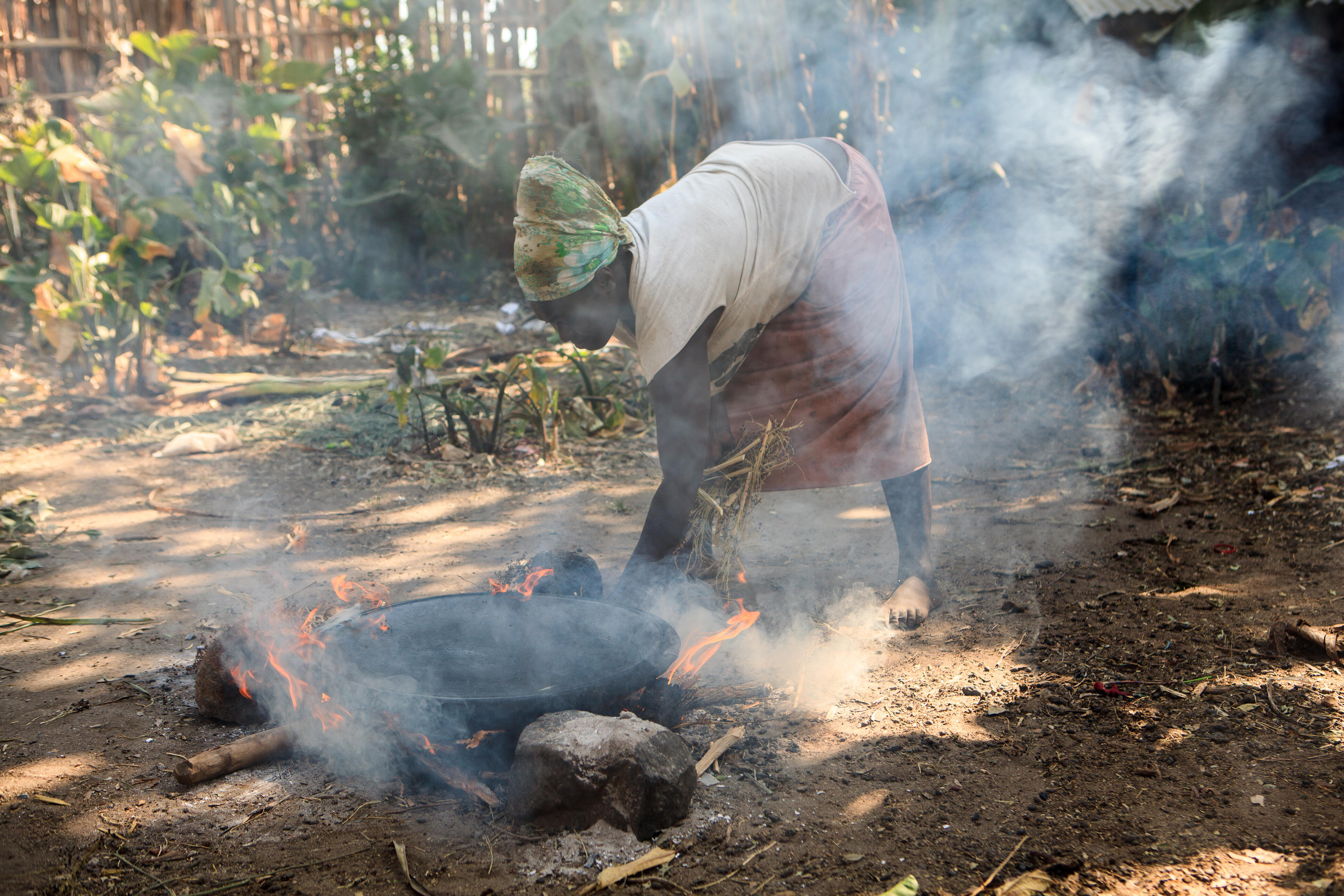
Researchers from LSTM have led a review in The Lancet looking at chronic respiratory diseases in low-and middle-income countries (LMICs) and how they can provide quality care to people, which is equitable and affordable.
The review, led by Dr Jamilah Meghji and Professor Kevin Mortimer, highlights key challenges around the prevention and management of chronic respiratory diseases, setting out pathways to solutions and research and clinical care priorities to eventually achieve true Universal Health Coverage.
Non communicable diseases including asthma, chronic obstructive pulmonary disease, bronchiectasis and post-tuberculous lung disease are a major cause of morbidity and mortality, accounting for approximately 70% of deaths worldwide, with the highest risks of dying of these conditions observed in LMICs. Chronic respiratory diseases are strongly associated with poverty, infectious diseases, and other non-communicable diseases, and contribute to complex multi-morbidity, with significant consequences for the lives and livelihoods of those affected.
The World Health Organization has identified the prevention and control of chronic respiratory diseases as an urgent development issue and essential to the achievement of the Sustainable Development Goals. Dr Meghji said: “morbidity due to respiratory diseases contribute substantially to the disease burden in LMICs. The Universal Health Coverage agenda offers an ideal opportunity to ensure the needs of those suffering from these are addressed through affordable and sustained access to appropriate and effective diagnostic evaluation and therapeutic interventions which are relevant worldwide.”
The team explored how poverty reduction measures must be at the heart of efforts for prevention, with a specific focus on improving maternal nutrition and health, reducing exposure to airborne contaminants such as tobacco smoke and air pollution, and improving the prevention and management of severe or untreated respiratory infections including tuberculosis. In addition, evidence-based therapeutic strategies, improved epidemiological and risk factor data also required to reduce ongoing morbidity and mortality amongst those with established chronic respiratory diseases.
However, it was also stressed that it is important to not ignore the unique exposures, health system constraints, and social and political contexts which shape disease in LMICs. Renewed efforts are required to understand the pathophysiology of chronic respiratory disease and patient outcomes in LMICs, and to develop approaches to diagnosis and management which are feasible, acceptable, and appropriate to local contexts and integrated within broader healthcare packages.
Professor Mortimer continued: “Although it will be a challenge, the hope is that this work will serve as a catalyst for the implementation of strengthened chronic respiratory disease health services, capability building and applied health research in the years ahead, as we seek to improve the respiratory health of children, adolescents and adults in low resource settings.”
The review highlights the importance of health system strengthening, capacity building and implementation research in realising the potential of UHC to reduce the burden of CRD.
We thank the NIHR Global Health Research Unit on Lung Health and TB in Africa at LSTM - “IMPALA” for helping to make this work possible. In relation to IMPALA (grant number 16/136/35) specifically: This research was funded by the National Institute for Health Research (NIHR) (IMPALA, grant reference 16/136/35) using UK aid from the UK Government to support global health research. The views expressed in this publication are those of the author(s) and not necessarily those of the NIHR or the UK Department of Health and Social Care.”
Improving lung health in low-income and middle-income countries: from challenges to solutions
Jamilah Meghji; Kevin Mortimer; Alvar Agusti; Brian W Allwood; Innes Asher; Eric D Bateman; Karen Bissell; Charlotte E Bolton; Andrew Bush; Bartolome Celli; Chen-Yuan Chiang; Alvaro A Cruz; Anh-Tuan Dinh-Xuan; Asma El Sony; Kwun M Fong; Paula I Fujiwara; Mina Gaga; Luis Garcia-Marcos; David M G Halpin; John R Hurst; Shamanthi Jayasooriya; Ajay Kumar; Maria V Lopez-Varela; Refiloe Masekela; Bertrand H Mbatchou Ngahane; Maria Montes de Oca; Neil Pearce; Helen K Reddel; Sundeep Salvi; Sally J Singh; Cherian Varghese; Claus F Vogelmeier; Paul Walker; Heather J Zar; Guy B Marks
The Lancet, ISSN: 0140-6736, Vol: 0, Issue: 0
Published:February 22, 2021 DOI:https://doi.org/10.1016/S0140-6736(21)00458-X